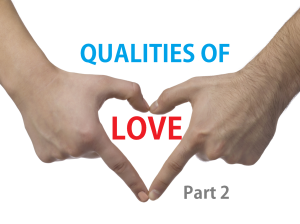We’ve all heard delightful stories of a lady keeping and treasuring a bundle of love letters – for a lifetime. Long after the fellow who wrote them is moldering in his grave, she still treasures them, and rereads them often. Honestly, though, such experiences are the exception, rather than the rule. Why doesn’t every couple have a trove of such treasured communications? Could it be because most of us just don’t care that deeply – or is it that we don’t really  know how to write a love letter?
know how to write a love letter?
Tulsa Christian Counselor
The truth is that in some cases, the casual intimacy which has developed in our society may actually prevent the growth of true intimacy – that of the mind and the spirit – but that’s a topic for another day. For the purposes of this discussion, we will assume that our readers really do care deeply about their loved ones – yet need a bit of advice about how to best “put it on paper”.
For starters – let’s consider how to start! It should go without saying that you won’t begin the letter with a greeting like “Dear Sir or Madam”. Do you have a pet name for your beloved, one that you whisper at special times when “it’s just the two of you”? If you do, that is where you should begin. Even that formal, traditional first word of most letters – “Dear” may be dispensed with, if it feels natural to do so. For example, if you call her “sweetheart”, consider beginning your letter with something like “Hi, Sweetheart!”
Tulsa Christian Counselor
Write to her (or him) in terms which allow your loved one to imagine that you are whispering in her/his ear. Assuming that you are separated by distance, be sure to mention that you miss her/him and are eager to see her/him soon (if that statement fits your situation). Say the “sweet nothings” that you would say if the two of you were alone in an intimate setting. Be discrete, though – technically, if the recipient is your spouse, then “intimate things” are not “wrong” – but do you really want to risk your kids reading them? Besides, some things just don’t belong on paper!
If you are going to convey news or business information in the letter, keep that part brief, and don’t be in a hurry to jump into it. First, spend several sentences in expressing your love and appreciation for your beloved. Of course, you should be careful to use language that actually sounds like yourself. It won’t enhance the impact of your love letter if your beloved is wondering who wrote it for you!
Is there something about your loved one that is “bugging” you – some character flaw that you really wish she/he would overcome, or maybe something that you’ve been arguing about? DON’T MENTION IT! Remember, you are writing a love letter. Gouging at a “sore spot” will guarantee that any love expressed in your letter will be overshadowed and forgotten. Keep it positive, or the letter IS NOT a love letter!
Think of the personal traits of your beloved which are most admirable, those which should most be encouraged, and those which attracted you to her/him in the first place, and focus most of your comments on those things. Come to think of it, the Apostle Paul’s advice, given in the Holy Bible, Philippians 4:8 (ASV) says something to that effect. Granted, the apostle wasn’t talking about how to write a love letter, but the advice certainly fits!
“Finally, brethren, whatsoever things are true, whatsoever things are honorable, whatsoever things are just, whatsoever things are pure, whatsoever things are lovely, whatsoever things are of good report; if there be any virtue, and if there be any praise, think on these things.”
When you run out of sweet things to say – or out of time, or of paper, whichever comes first – be sure that your closing is at least as sweet as the greeting. Express your love in closing, and sign the letter with the pet name that your loved one uses for you. If you have no such “pet name”, then sign it by whatever she/he calls you in private conversation.
Would you like to finish it off with a special touch? Seal the letter, then right over the seam where the flap joins the body of the envelope, hand draw a little heart, flower and add the letters “SWAK”. (Means “sealed with a kiss”) If you’re really feeling sweet, actually kiss the spot!
One final thought: the real reason that love letters are saved and re-read is the consistent, loving behavior of the sender. Fancy words and fancy graphics are a poor substitute for genuine love and understanding. True love letters are much deeper than the paper they are written on!
36.053158
-95.798114
 We don’t have a choice who will be our parents. We don’t have a choice of which family or clan we belong to. We don’t have the choice if our parents give birth to us in poverty or in wealth.
We don’t have a choice who will be our parents. We don’t have a choice of which family or clan we belong to. We don’t have the choice if our parents give birth to us in poverty or in wealth. 

